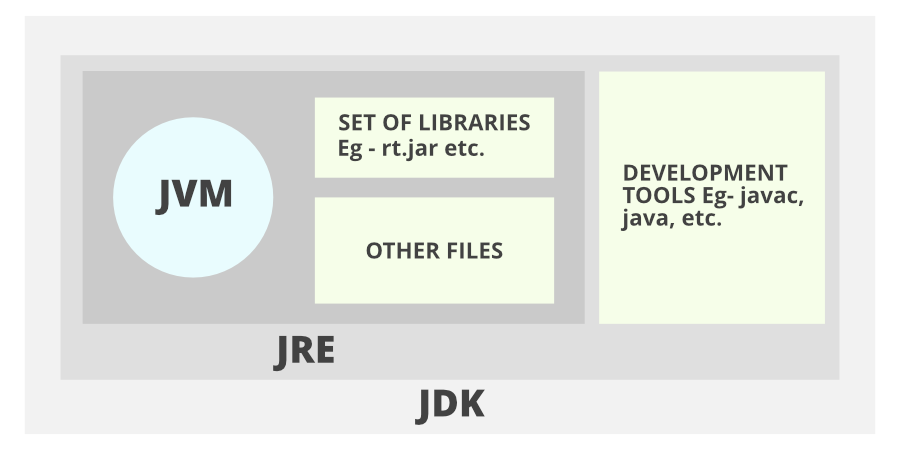Welcome to this easy and complete introduction to Java! If you are new to programming or want to build a strong career in software development, Java is one of the best languages to start with.
Java is a high-level, secure, object-oriented programming language used to build:
✅ Web applications
✅ Mobile apps (especially Android)
✅ Desktop software
✅ Cloud applications
✅ Big Data and AI tools
✅ Games and enterprise systems
Let’s explore why Java continues to dominate the programming world even after 25+ years!
✅ What is Java?
Java is a platform-independent, class-based programming language developed by James Gosling at Sun Microsystems (Now part of Oracle). Its first version was released in 1995.
📌 Java slogan:
Write Once, Run Anywhere (WORA)
✔ Compile your code once
✔ Run it anywhere the JVM (Java Virtual Machine) exists
This makes Java extremely portable and developer-friendly.
✅ Why is Java So Popular?
Here are the top reasons:
| Reason | Description |
|---|---|
| Cross-platform | Runs on Windows, Linux, macOS & more |
| Object-oriented | Easier to scale and maintain |
| Secure | Built-in security features |
| Robust | Strong memory management and exception handling |
| Huge Community | Millions of developers and tons of libraries |
| Enterprise Use | 90% of Fortune 500 companies rely on Java |
Java powers companies like 👇
Google, Netflix, Uber, Amazon, eBay, LinkedIn, Spotify, and thousands more!
✅ Java Architecture – How Does Java Work?

Java works on a two-stage execution model:
1️⃣ Code is compiled into Bytecode
2️⃣ JVM executes the bytecode on any OS
| Component | Role |
|---|---|
| JDK | Helps compile and develop Java applications |
| JRE | Runs Java programs |
| JVM | Executes bytecode inside OS |
👉 Learn more: JVM Architecture in Java
✅ Features of Java (Why Developers Love It)
✔ Platform-Independence
✔ Object-Oriented
✔ Simple & Familiar
✔ Secure & Robust
✔ High Performance
✔ Multi-threaded
✔ Distributed Processing
✔ Huge Standard Library
✅ Hello World Example in Java 🚀
public class HelloWorld {
public static void main(String[] args) {
System.out.println("Hello, Java!");
}
}
Output:
Hello, Java!
This shows the basic structure of a Java program using a class and a main method.
✅ Where is Java Used?
Java is everywhere in software development:
| Field | Examples |
|---|---|
| Android Development | Apps, Mobile Games |
| Web Development | Spring Boot, Microservices |
| Enterprise Software | ERP, Banking, Insurance platforms |
| Finance & FinTech | Trading, Payment gateways, Risk systems |
| Cloud Computing | AWS, Azure, GCP services |
| AI & ML | Chatbots, Data processing, NLP |
| Big Data | Hadoop, Kafka, Spark |
| IoT | Edge devices, Smart home systems |
| Game Development | Lightweight desktop & mobile games |
| Government & Defense | Secure information systems |
Big companies using Java:
Google, Netflix, Amazon, Uber, IBM, Accenture, JPMorgan Chase, NASA 🚀
✅ How is Java Used in AI?
Java is widely used in Artificial Intelligence because it supports:
✔ High performance for ML model execution
✔ Multithreading for parallel data processing
✔ Strong memory management
✔ Cloud-native microservices and enterprise AI platforms
✔ Massive support from Big Data tools like Hadoop & Spark
Here are the major AI areas using Java:
| AI Domain | How Java Helps |
|---|---|
| Machine Learning | ML model building, deployment & scalable execution |
| Deep Learning | Integration with TensorFlow, DL4J |
| Natural Language Processing (NLP) | Chatbots, search engines, language processing |
| Computer Vision | Object detection, image recognition |
| Big Data Analytics | Data pipelines & distributed computation |
| Multi-Agent Systems | Intelligent decision-making engines |
✔ Most enterprise AI systems use Java because it’s secure, scalable & Cloud-friendly.
📌 Popular Java AI Libraries:
- Deeplearning4j (DL4J) – Neural networks & deep learning
- Apache Mahout – Large-scale machine learning
- Weka – Data mining & classification
- NLP libraries – OpenNLP, Stanford NLP
- Spark MLlib – Machine learning at scale
👉 Java + Python combo is very common in AI:
Python for model training ✅
Java for production deployment ✅
✅ Career Opportunities in Java
Java Developers are always in demand.
| Job Roles | Average Salary (India) |
|---|---|
| Java Developer | ₹4L – ₹18L per year |
| Full Stack Java Developer | ₹6L – ₹25L |
| Android Developer | ₹4L – ₹20L |
| Software Engineer | ₹5L – ₹30L |
💡 More than 10 Million Java Developers worldwide!
✅ How to Start Learning Java (Beginner Tips)
✅ Install latest JDK (Java 17/21 LTS recommended)
✅ Start writing small programs daily
✅ Practice OOP concepts
✅ Learn Collections, Streams & Memory model
✅ Build small projects (console → web → Android)
The more you code, the better you become! 🚀
✅ Frequently Asked Questions (FAQ)
1️⃣ What is Java in simple words?
Java is a programming language used to develop apps for computers, mobiles, and web.
2️⃣ Is Java easy to learn?
Yes! Java has simple syntax and huge community support.
3️⃣ What is JVM in Java?
JVM runs Java bytecode and makes Java platform independent.
4️⃣ Which version of Java should beginners use?
Learn using Java 17 or Java 21 – both are LTS versions.
✅ Final Thoughts
Java is powerful, fast, secure, and future-proof.
Whether you’re building Android apps, web systems, or cloud services – Java is everywhere!
If you want a long-term tech career, mastering Java is absolutely worth it. ✅🚀